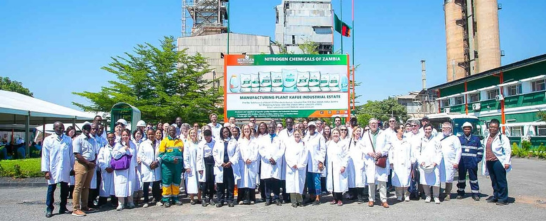
Share on FacebookShare on TwitterShare via Whatsapp
While many African economies struggle to balance production and demand,Zambia is building a future where agricultural self-sufficiency and modern education are becoming a reality. Strategic investments in fertilizers and educational infrastructure are strengthening production and the country’s competitiveness.
The new Nitrogen Chemicals of Zambia (NCZ) plant in Kafue exemplifies this transformation. With modern blending and granulation facilities,Zambia is set to meet domestic fertilizer demand and expand into export markets between 2025 and 2030. According to Agriculture Minister Reuben Mtolo Phiri,“this investment strengthens the economy,production capacity,and the future of our farmers.”
Africanian News and AhoraEG launch joint journalism training program
The results are already visible. In the 2024/25 season,Zambia produced over 3.7 million metric tons of food,exceeding its national requirement by 1.2 million tons. The Zambia Emergency Food Production initiative has supported nearly 5,900 farmers—over half of them women—with certified seeds and fertilizers. This season,more than 9,000 farmers are expected to benefit from nearly $35 million in financing. Fertilizer costs are also projected to drop by 40%,a significant relief for smallholder farmers.
In the education sector,the University of Zambia has modernized laboratories and lecture halls through the Support to Science and Technology Education Project,allowing training for over 250,000 students. Vice-Chancellor Professor Mundia Muya noted,“A modern learning environment not only improves teaching but also enhances research and innovation,which are key drivers of the country’s economic growth.”
These investments combine economic development,agricultural resilience,and human capital formation. Zambia is emerging as an example of how strategic initiatives can transform production,education,and overall competitiveness in Africa.
United News - unews.co.za